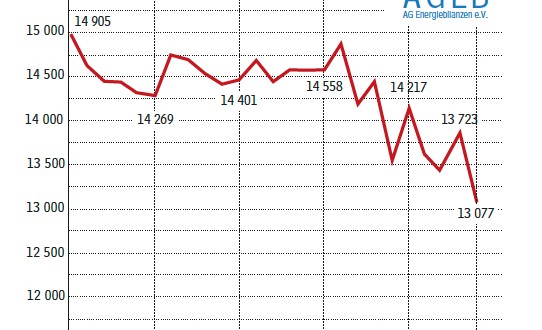Energy consumption in Germany reached a level of 11,769 PJ or 401.6 Mtce in 2022. This corresponds to a decrease of 5.4 % compared to the previous year. Energy consumption thus fell to its lowest level since reunification, writes Arbeitsgemeinschaft Energiebilanzen (AG Energiebilanzen), Berlin/Germany, in its Annual Report 2022 (Figure 1). The development of energy consumption and the use of the ...
Read More »